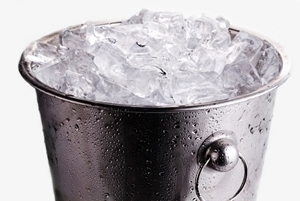You've probably seen it on social media during your travel nursing career. Folks stand in front of a camera clad in bathing suits, proclaiming who nominated them for the video, when suddenly, they are doused in water. It's called the ice bucket challenge, and it has made incredible contributions to amyotrophic lateral sclerosis (ALS) research.
About the ice bucket challenge
The ice bucket challenge is a viral campaign that started in 2014 to raise awareness about and funds for ALS. Also called Lou Gehrig's disease, it is a neurodegenerative condition that leads to progressive muscle weakness. Participants record video of themselves dumping cold water on their heads just after nominating other friends to join the campaign. Nominees could always opt out of the challenge by making a donation.
Nonetheless, millions of people across the world joined in on the cause, including several celebrities. According to The New Yorker, famous faces like Leonardo DiCaprio and Justin Timberlake participated in the ice bucket challenge.
Outcomes of the ice bucket challenge
And as it turned out, the challenge paid off. As The New Yorker explained, the ice bucket challenge raised $20 million in just eight weeks, which accelerated research capabilities. Recently, though, the ALS Association has been able to show concrete evidence of the benefits the ice bucket challenge brought.
The Association announced in July that the ALS research team at the University of Massachusetts Medical School discovered a gene, NEK1, that contributes to the disease. This was a direct result of a $1 million grant the team received, thanks in part to funds raised by the ice bucket challenge.
The reason this finding is so significant is that it gives researchers a new direction for ALS drug development. Specifically, the scientists are evaluating whether NEK1 mutations damage the cytoskeleton of cells, which contributes to ALS. And while one gene discovery seems small, the foundation emphasized that it is an important stepping stone to eventually developing treatment and cures.
Using social media as a travel nurse
Social media is a great platform for raising awareness about diseases, but healthcare professionals must be careful about their online activity. You can certainly do your part to support medical research, such as participating in the ice bucket challenge. You just need to practice caution.
The American Nurses Association reminded providers that anyone – colleagues, supervisors and patients – might see your posts. To avoid issues, either with HIPAA or medical facility policy, respect the provider-patient boundaries, and never put protected health information online. It's also best practice to avoid posting pictures of patients.
Otherwise, you should feel free to use your unique knowledge on health as a way to spread awareness and raise funds. You might post a status each day about the myths and facts of mental illness, which despite progressive medicine still carries stigmas. For instance, the U.S. Department of Health and Human Services highlighted that many people believe those with mental illness can "snap out of it." However, you can explain how uncontrollable biological factors can contribute to the condition.
You can also hold a fundraiser to benefit research for a disease and use social media as a way to spread the word. For example, you could ask a local park district to borrow their gym and host a basketball tournament. Each team pays a fee for entry, and the money goes to a foundation of your choice. Invite everyone you know on Facebook, and the event is sure to be a success.
Of course, you don't need social media to raise awareness about certain conditions. As a travel nurse, you get to work one-on-one with patients and have the opportunity to teach them about prevention and healthier lifestyles.

